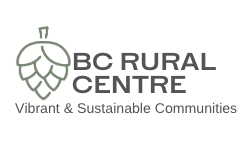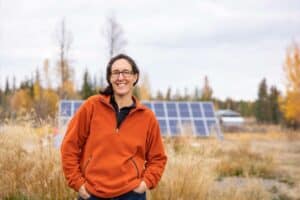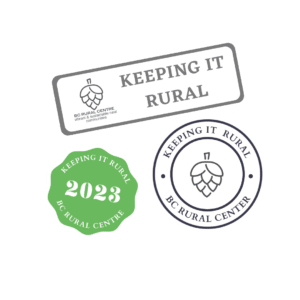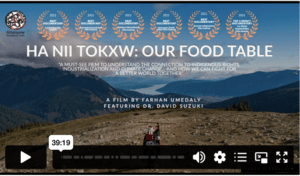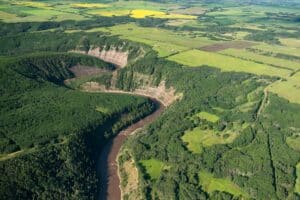News
BC Doctor Develops National Guide for the Greening of Health Care
The healthcare sector is among the most polluting, contributing 5 per cent of Canada’s total greenhouse gas. A Kimberley-based physician, Dr. Ilona Hale, and a team of health care professionals have produced a new resource, specifically aimed at clinicians called ‘Planetary Health for Primary Care’. “It’s an online guide for healthcare providers meant to make…
Read MoreDigitalization and Housing
Framing Paper for “Bringing Digitalization Home: How Can Technology Address Housing Challenges?” OCTOBER 2022 | DAVID LUBEROFF, CHRISTOPHER E. HERBERT To stimulate these discussions, the Joint Center for Housing Studies, with support from Qualcomm, Inc., commissioned eleven papers by leading researchers familiar with how digitalization is changing (or could change) practices in five key areas:…
Read MoreKeeping It Rural Conference…Thank You
Dear Sponsors, Attendees, and Speakers, On behalf of the BC Rural Centre Society and the Keeping It Rural Conference, I want to extend my heartfelt gratitude for your participation and support. Your presence and contributions made this event a resounding success, and we are incredibly grateful for your commitment to rural communities. To our sponsors, thank…
Read MoreHA NII TOKXW: OUR FOOD TABLE
The story of the indigenous Gitanyow people and their struggle to protect their traditional lands and “food table” in the face of climate change, industrialization and colonization in Northern British Columbia. SIGN THE PETITION TO PROTECT THIS SACRED PLACE: https://chng.it/h5rzcPgkXZ Featuring: Dr. David Suzuki Gitanyow Hereditary Chiefs www.gitanyowchiefs.com A film by Farhan Umedaly VoVo Productions 2021 @vovoproductions Director’s Statement: Beyond its majestic beauty and nature hidden threats are pushing the delicate ecosystem of the Meziadin Lake watershed to the brink. Ha Nii Tokxw, takes audiences on a visually stunning adventure through Wilp Wii Litsxw territory to uncover its ecological significance both…
Read MoreBuilding Local Food Systems: A Path to Food Sovereignty
In today’s fast-paced, globalized world, the importance of building resilient and sustainable local food systems cannot be overstated. This is particularly crucial in rural, remote, and First Nation communities, where geographical isolation and limited access to mainstream markets often pose significant challenges to food access. However, by embracing the concept of food sovereignty and taking…
Read MoreAgricultural Land Reserve Settles Treaty 8 Claims
First Nations will receive approximately 27,000 acres of protected agricultural land in BC’s Peace Region as a result of settlement agreements addressing their land entitlements claims under Treaty 8, signed in 1899. “For more than 100 years, the First Nations were deprived of the use and benefit of thousands of acres of land owed to…
Read MoreInnovative Approach to Medical Training
A visionary Canadian physician believes three new medical schools opening in Canada will flip the country’s medical training model on its head to focus more on family medicine. “It takes a community to raise a physician,” said Dr. Roger Strasser, interim dean of the new Simon Fraser University Medical School and founding dean of the Northern Ontario School of…
Read MoreKeeping It Rural 2023
June 1st and 2nd, 2023 in Kelowna, BC at the Hampton Inn We are planning to cover many of the challenges and opportunities facing rural BC right now. From mill closures, and mega-projects to innovation in agriculture and rural health updates. The tickets will go on sale in mid-March and due to limited seating we…
Read More20 Years of Fallout in the Forestry Sector
More than 20 years ago, a tiny insect changed B.C.’s forestry future. The fallout is still happening Job losses being seen across the province have been predicted for more than a decade, industry leaders say No one is surprised by the news of Canfor shutting down one of its pulp mills in Prince George. Not…
Read MoreDrug Use Study Conducted in qathet Region
A study of people who use drugs conducted in the qathet region found a variety of negative consequences, likening the situation for drug users to living in a goldfish bowl. Dr. Geoff Bardwell, the study’s lead, who is affiliated with BC Centre on Substance Use, and is also an assistant professor in the school of…
Read More